Melbourne Uni - SFIA Framework Analysis for Professional Development
VerifiedAdded on 2022/12/26
|6
|1230
|42
Project
AI Summary
This project presents an analysis of the Skills Framework for the Information Age (SFIA), focusing on the application of SFIA models for professional development. The assignment begins with a resume assessment, highlighting the student's technical skills and experience in areas such as database management (MySQL, MS SQL), web development, software testing, and programming languages (Java, C, Python), as well as cloud computing using AWS and Cloudflare. The project then moves to cover letter preparedness, emphasizing the importance of tailoring the letter to the job requirements and demonstrating relevant skills with examples. The SFIA generic attributes, including autonomy, influence, complexity, business skills, and knowledge, are then discussed, followed by a self-assessment of the student's professional skills using the SFIA framework, detailing skill levels and responsibilities. The project concludes with a personal journal reflecting on the skills gained during an internship, such as teamwork, communication, and adaptability, and their application in a professional setting. The student references the SFIA framework throughout, mapping their skills and experience to the framework's levels of responsibility. The project also includes references to academic sources that support the use of the SFIA framework for skills assessment and career planning.
1 out of 6
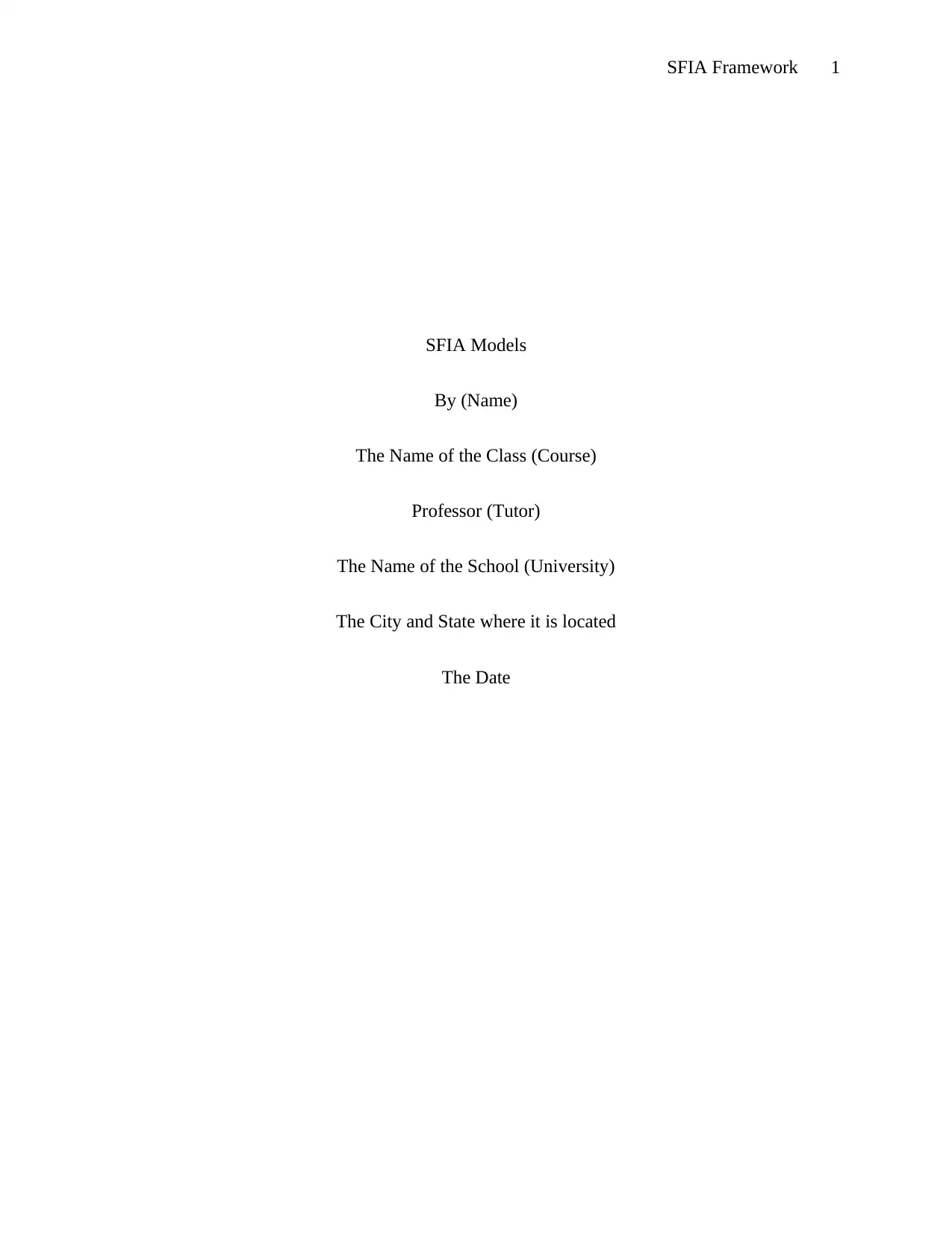
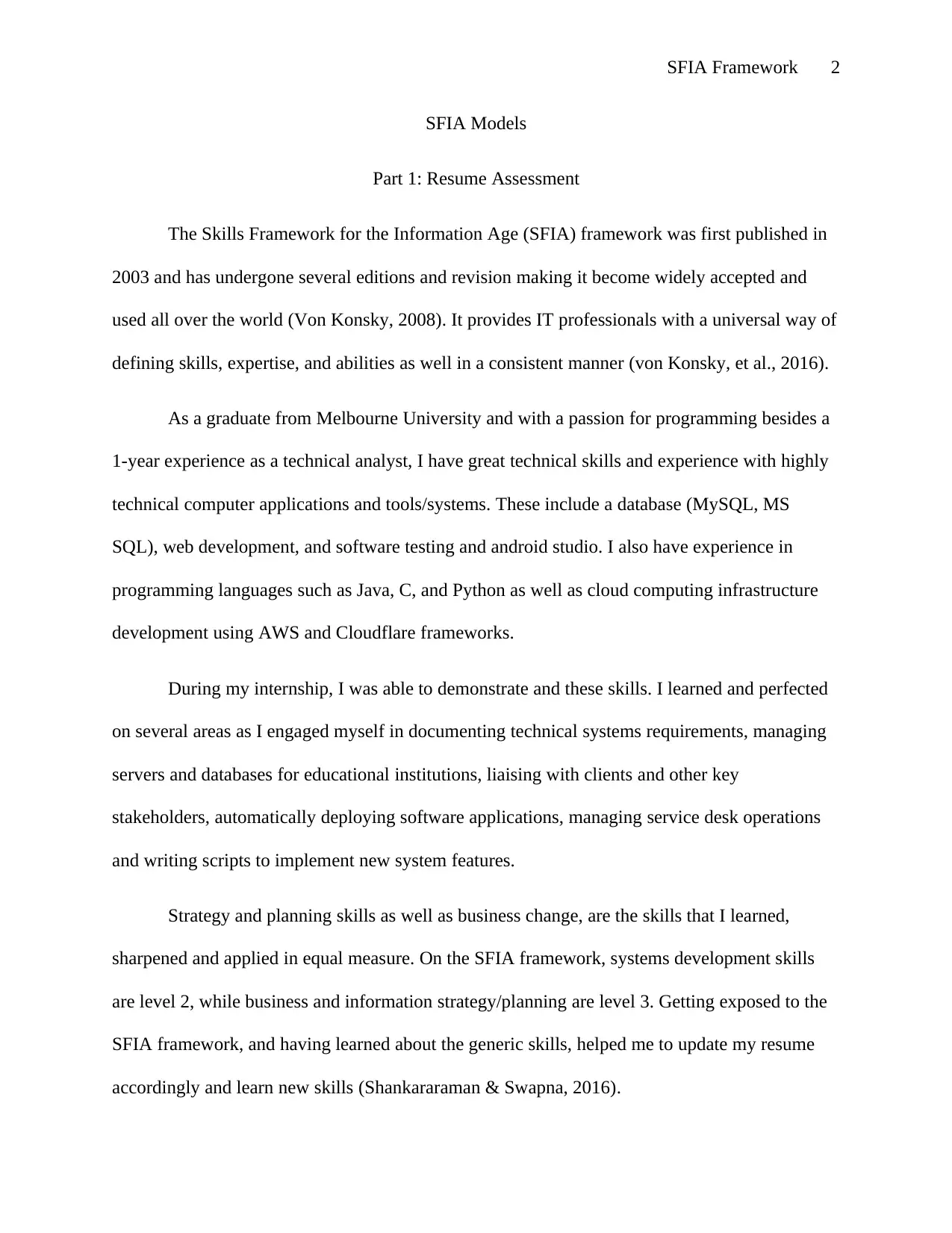
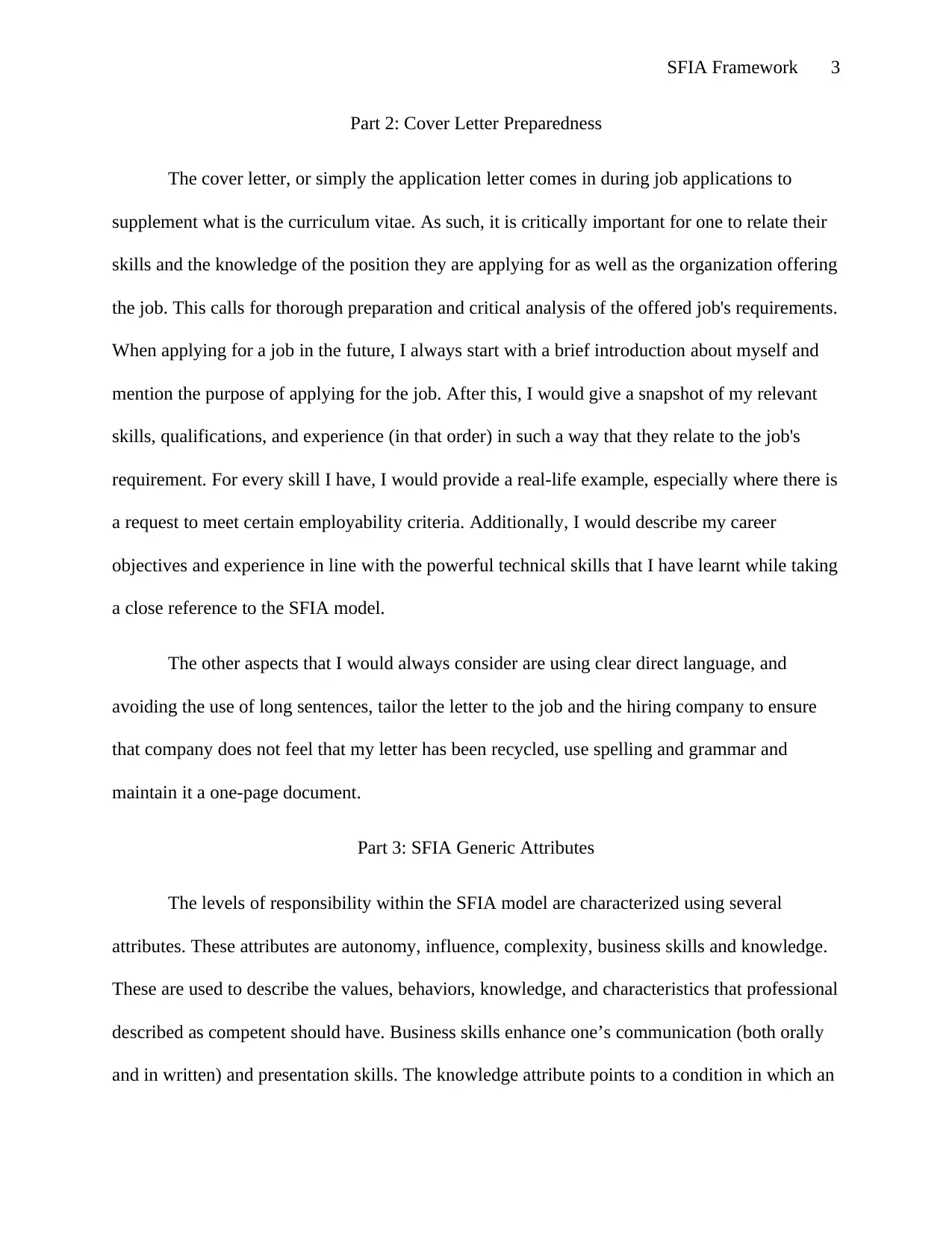

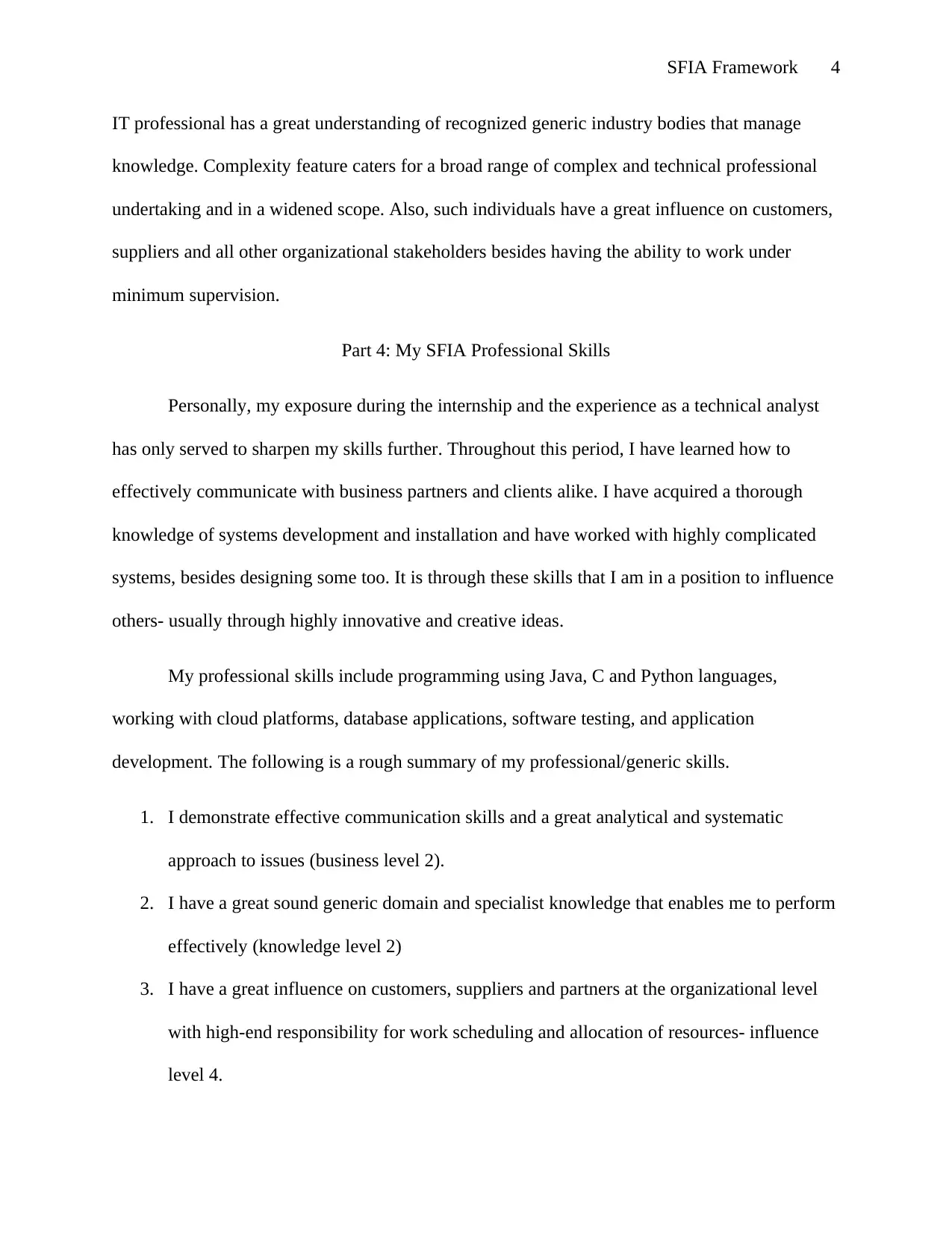
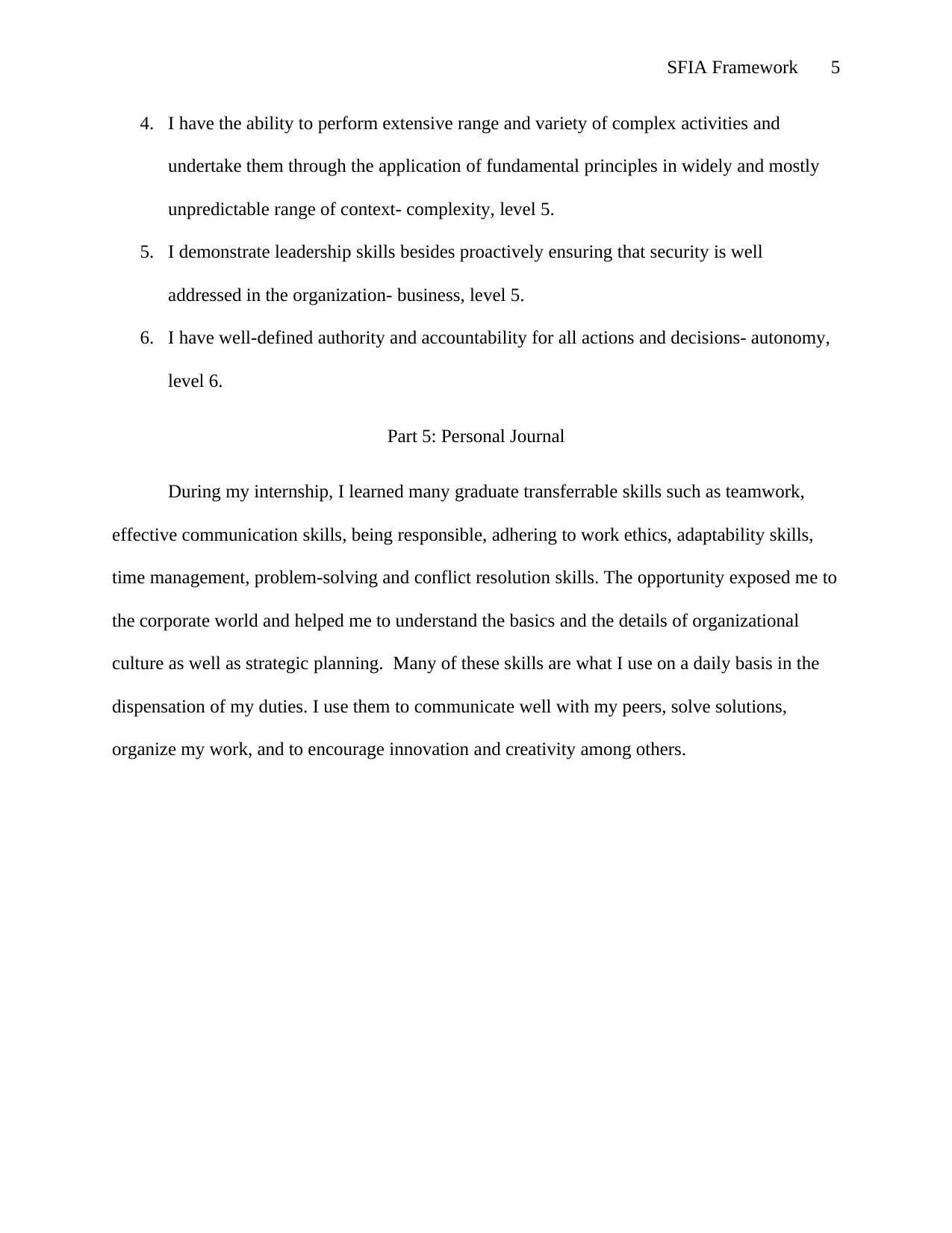
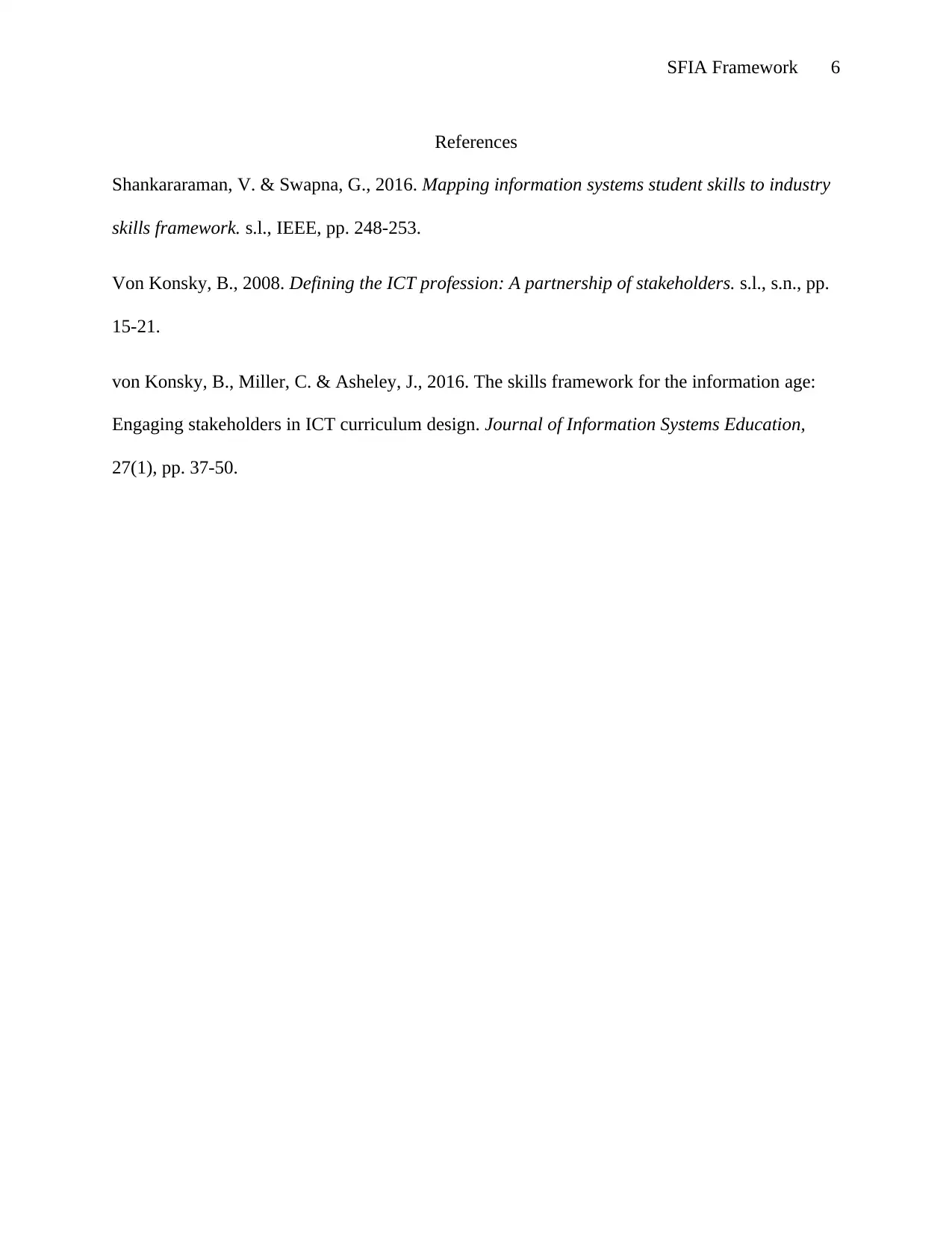





![[object Object]](/_next/static/media/star-bottom.7253800d.svg)